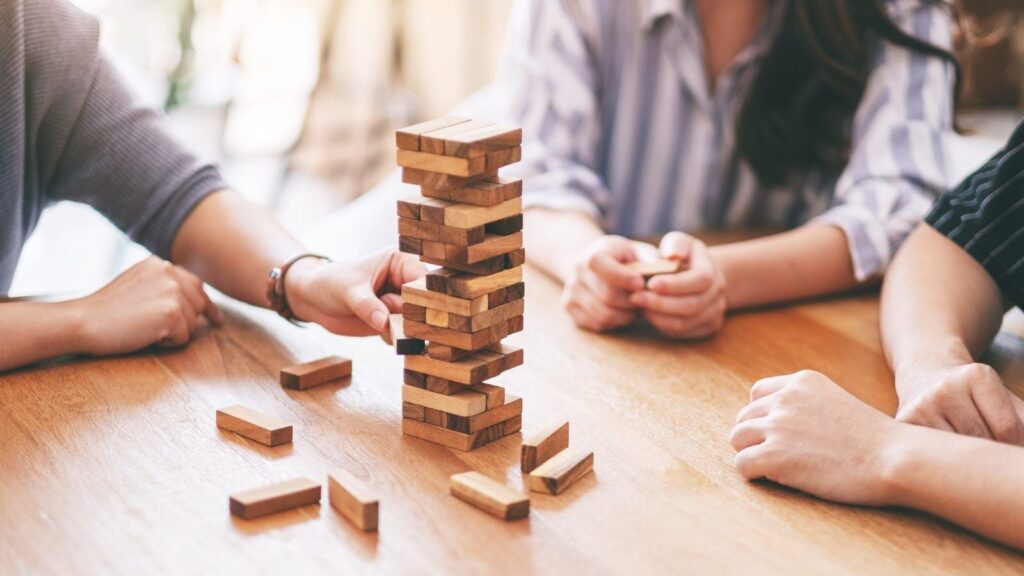Do you ever find your mind wandering during work or do you struggle to stay focused on a task? With today’s hectic lifestyle, it is completely normal to feel a little all over the place sometimes. But staying mentally sharp and focused can make everyday tasks feel a lot more manageable. We are not about to tell you to start meditating or hit the gym to boost your focus. Instead, how about playing some mind games? Yes, really! Certain games can actually train your brain, improve memory, and boost concentration. Whether you are working through a challenging project or just trying to clear the mental fog, a few minutes of playing the right game can help. So, ready to give your brain a fun workout?
Mind games to improve focus and concentration
Here are 5 engaging mind games that can help boost your memory, strengthen your focus, and sharpen your mental skills:
1. Sudoku
Sudoku is a number puzzle game that challenges players to fill a 9×9 grid so each row, column, and 3×3 box contains the digits 1 to 9, without repeats. More than just a casual pastime, it is a powerful mind game that sharpens logic, improves focus, and strengthens memory. “Regularly solving Sudoku puzzles helps train the brain to think critically and recognise patterns,” says neurologist Dr Sheetal Goyal. While digital versions are available, many find the pen and paper experience more immersive. Whether you are a beginner or a seasoned solver, Sudoku is a simple yet effective way to enhance your concentration and keep your mind agile.
2. Jenga
Jenga is a fun and engaging game where players take turns removing wooden blocks from a stacked tower and carefully placing them on top, without letting it fall. It may seem like just a party game, but Jenga can actually improve focus, patience, and hand-eye coordination. For adults, it is a great way to step away from screens, reduce stress, and stay mentally sharp. The careful moves required help train your mind to stay calm under pressure. Playing Jenga regularly can boost mental strength, helping you stay focused at work and handle distractions more easily.
3. Chess
Chess is a classic board game loved around the world for its deep strategy and mental challenge. Every move requires focus, planning, and patience, making it a powerful way to sharpen your mind. As players try to predict their opponent’s next steps, they naturally practice seeing things from another person’s perspective, a skill known as ‘theory of mind.’ This not only improves strategic thinking but also helps build empathy and stronger social connections.
Beyond that, chess offers many mental health benefits. It boosts memory, improves creativity, and strengthens planning skills. “For adults, especially those in high-stress jobs, playing chess can offer a calming break that keeps the brain engaged,” explains Dr Goyal. A study published in the International Journal of Environment Research and Public Health even suggests it may lower the risk of dementia in older adults, making it a smart choice at any age.
4. Jigsaw puzzle
A jigsaw puzzle is a game where you fit small, oddly-shaped pieces together to complete a bigger picture. It may be a beautiful landscape, a famous artwork, or anything in between. The goal is simple—match the pieces based on shape, colour, and image until the full picture comes together. It is relaxing, rewarding, and surprisingly addictive.
Jigsaw puzzles are great for the brain because they use both logic and creativity. They improve concentration, problem-solving skills, and patience. A study from Cambridge University linked doing puzzles to a lower risk of dementia, thanks to the mental challenge they provide. It is a peaceful yet powerful way to keep your mind sharp.
5. Crossword puzzle
A crossword puzzle is a word game where you fill in a grid using words that match given clues. Each clue points to a word that fits both the meaning and the number of boxes available. You can find crosswords in newspapers, books, and apps, and they come in all difficulty levels, from easy to tricky.
Solving crosswords is a great way to boost your memory, expand your vocabulary, and improve focus. It makes you think carefully about each clue, testing your knowledge and reasoning skills. As you solve more puzzles, it stimulates your logical reasoning, improves concentration, and uplifts your mood.

